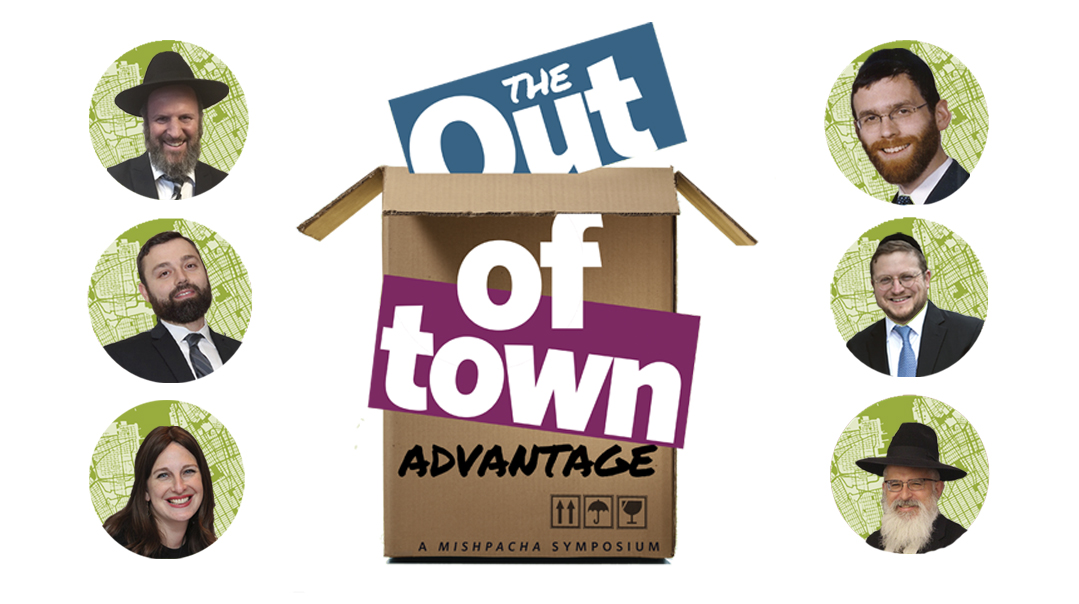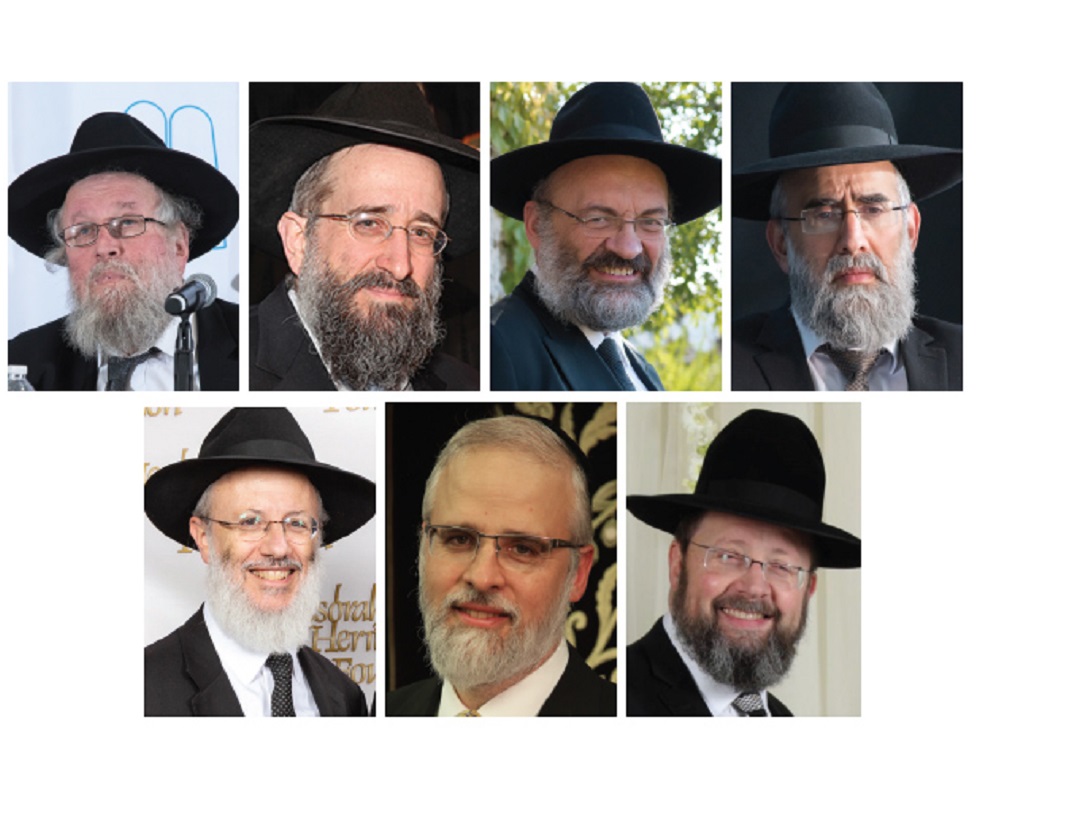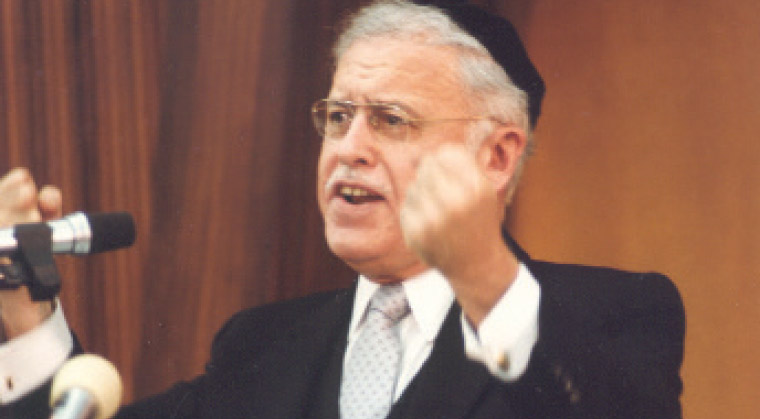In Our Political Times: Every Little Bit Counts
| March 28, 2018Reexamining our allegiances, involvement, and expectations in a turbulent political landscape

W
hen frum newspapers arrived on the European scene in the 19th century, not everyone cheered. Some Torah figures saw them as a necessary counterforce to the incessant belittling of Torah in the Jewish secular press. Some saw them as conduits of important information for Torah Jews about events that could affect their lives. Still others saw them as the creation of a new yetzer hara. Once exposed, Yidden would make newspapers part of their daily routine, wasting precious time that could be devoted to learning.
As is the case so often, they were all right. There is no need for all of us to be political junkies. While the machinations of the political process are understandably interesting, particularly as they affect our interests, most of us can accomplish much more with a extra few moments of Torah and tefillah, rather than by reading a few more online op-eds.
That said, there are new reasons today to stay involved with the news and with the political process.
Firstly, there is an element of nosei b’ol im chaveiro in hungrily devouring news from Israel. Decades ago, an adam chashuv surprised a gathering of outreach professionals at an Association for Jewish Outreach Programs (AJOP) convention by letting on that his first activity each week after Havdalah was checking on the news from Israel. Regardless of the different attitudes in the Orthodox world toward the government of the Jewish state, we all understand that it is the single largest Jewish population center in the world. Most of us have close relatives there; even if we didn’t, by making it the first among many news interests, we follow the example of a young Moshe, emerging from the royal palace, to walk among his brethren. Chazal tell us that he set his eyes and heart upon them to identify with them in their travail, and take their pain upon himself. We do the same when we willingly elevate our blood pressure by digesting the latest from our embattled country.
Secondly, it is more important today for frum Jews to both avidly follow the news, and to be involved in the political process.
On the one hand, we no longer can rely on anyone else to speak for our interests. Issues that we are passionate about — Israel, yeshivos — are vigorously opposed by secular and heterodox Jews. Their concerns, so often amounting to an almost unqualified personal autonomy, we find to be anti-Torah. We used to stand shoulder-to-shoulder with most of the non-frum Jewish world. No longer. We have no choice but to take over where others used to do much of the heavy lifting — in state capitals, in civil society, and in the media. While much of this can be left to specialists within our community, they will not have the financial or moral support of a constituency that is unaware of the issues. Therefore, a moderate amount of active interest might be defensible.
There is, I believe, a more subtle reason for keeping current with the news. Simply put, doing so allows us to shine some light through the dark clouds gathering around us.
A number of factors contribute to this gloomy forecast. The decline of the importance of the Jewish vote translates into a decline in Jewish influence. There are more groups competing for political favors — and ours increasingly has less clout. B’chasdei Hashem, anti-Semitism was driven underground for a few decades. But it has returned with a fury, not only in the madness of virulent Islamic extremism, not only in the reemergence of the far right, but even in the minds of some ordinary Americans. The cultural mood of America has changed. Anyone — Jew or non-Jew —with strong beliefs in any absolute code of conduct, but especially one based on religion — is increasingly looked upon as a primitive who is an obstacle to the full civil rights of others.
And, like it or not, the Internet has changed our world. Today, there are literally hundreds of websites dedicated to carrying the news of Jewish misdeeds instantly to millions of people. Thousands of trolls read the comments on our websites, and trumpet every unfortunate bigoted response by one of us around the world. We are in danger of drowning in a sea of chillul Hashem.
The only antidote to chillul Hashem is kiddush Hashem. Before the bad guys can poison the minds of our neighbors, more of us must see ourselves as ambassadors of Torah to the world. Every interaction with our neighbors is an opportunity for them to see the best of Torah, rather than the worst. Every smile, every door held open, every time we yield in traffic or refuse to cut a line — they all contribute to an impression others have of us. This was always true, but it is far more critical today than it was a decade ago.
Keeping up with the news — particularly the bad news — may be a powerful tool in motivating us to do the right thing, as long as we read the news from a Torah perspective.
Originally featured in Mishpacha, Issue 704. Rabbi Adlerstein is the director of Interfaith Affairs for the Simon Wiesenthal Center and the founding editor of and regular contributor to Cross-Currents, a popular blog of Torah and current affairs. The author of seforim on the Maharal of Prague and the Slonimer Rebbe, he recently moved to Israel after four decades in Los Angeles.
Oops! We could not locate your form.













